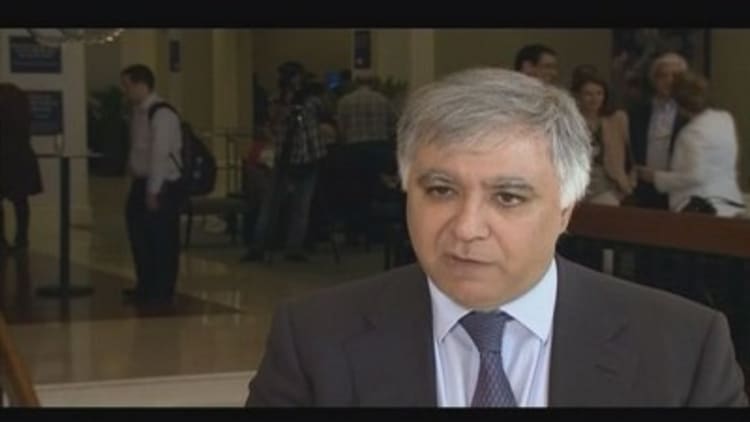As Iraqi security forces launch an offensive to recapture key cities reportedly taken by Al-Qaeda-linked militants in the western province of Anbar, oil traders appear to have taken the latest developments in their stride.
The fighting is concentrated in the cities of Fallujah and Ramadi, areas largely devoid of sizable oil fields and critical ancillary facilities. But they are still within a 60-mile radius of the capital Baghdad,and could put at risk Iraq's medium and long-term oil exporting objectives.
(Read more: )
"Iraq has very ambitious medium-term growth targets for oil production, which might be impacted should the tensions continue, intensify or spread further to the oil-rich provinces," Eugen Weinberg, head of commodity research at Commerzbank, told CNBC.
On Monday, Iraqi Prime Minister Nouri Al Maliki called on residents of Fallujah to stand up to militants and help reinstate government control. Authorities carried out an airstrike on Ramadi on Sunday, killing 25 militants, according to local sources.
(Read more: )
"Any major violence would derail plans to increase capacity. Major infrastructure projects would continue, albeit at a slower pace," Shwan Ibrahim Taha, chairman of Rabee Securities, explained to CNBC.
Taha also pointed out that it was a different story in Iraqi Kurdistan, the semi-autonomous region in the north, where production was ahead of schedule.

"No major oil fields are located in the west of Iraq. For now, there is no direct impact on current operations," Weinberg added. The most prized oil assets are in the north and south of the country.
The struggle of the incumbent administration to maintain order is demonstrated by last year's casualty figure. The United Nations put the death toll at 7,818 -- the highest since 2008.
But U.S. Secretary of State John Kerry was quick to reject the possibility of sending troops back in.
"We will help them in their fight, but this fight, in the end, they will have to win and I am confident they can," he told reporters on Sunday.
(Read more: Why oil could go below $80 a barrel)
Iraqi officials have already scaled back their previous ambitions of producing 12 million barrels per day (bpd) by 2017, to nine million bpd by 2020 instead. Data from the International Energy Agency (IEA) last month showed production was at 3.15 million bpd in November, falling short of its 3.5 million bpd year-end goal.
"In addition to the security concerns, operators have faced challenges with insufficient export infrastructure as well as bureaucratic delays, so the development of Iraq's production capacity is not matching its potential," Majid Jafar, CEO of Crescent Petroleum, told CNBC.
The shifting expectations have also forced international oil companies - including Eni, BP, Shell and Exxon - to revisit production targets for output in the country.
Despite the turmoil, however, Iraq remains on course to post the second-highest regional economic growth in 2014 at 6.3 percent, according to the International Monetary Fund (IMF).

